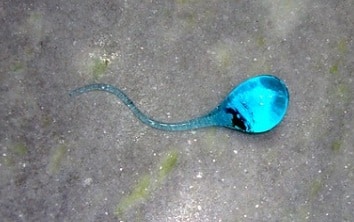 Spermatogenesis is the process that takes place in the testicles to create sperm . Sperm, meanwhile, are the male gametes : that is, the sexual cells that have the function of fertilizing the egg.
Spermatogenesis is the process that takes place in the testicles to create sperm . Sperm, meanwhile, are the male gametes : that is, the sexual cells that have the function of fertilizing the egg.
Spermatogenesis is the gametogenesis of man. Through meiosis and mitosis , germ cells called spermatogonia allow the production of sperm in the gonads (testicles). These gametes then mature in the epididymis .
Spermatogonia are found in the epithelium of the seminiferous tubules , coiled ducts found inside the testicles. Thanks to the gonadotropin-releasing hormone ( GnRH ), spermatogenesis is activated, which lasts between sixty-two and seventy-five days in the case of human beings .
 Developed in three phases, spermatogenesis generates sperm, which are haploid cells with a flagellum (tail) that allows them to move and a head that houses the chromosome material. When a sperm is ejaculated and manages to join an egg (the female gamete), fertilization is achieved.
Developed in three phases, spermatogenesis generates sperm, which are haploid cells with a flagellum (tail) that allows them to move and a head that houses the chromosome material. When a sperm is ejaculated and manages to join an egg (the female gamete), fertilization is achieved.
It should be noted that sperm and various fluid substances make up semen . With ejaculation , this liquid is expelled by the man through the urethra . Thus, when a man and a woman have sexual intercourse through the vagina, fertilization is possible.
It is important to mention that various disorders prevent spermatogenesis. Hormonal problems, infections , chromosomal alterations and trauma, for example, can cancel sperm production.
One of the most common is the exposure of the testicles to excessively high temperatures. It has been proven by scientific means that increasing heat in that area reduces sperm production. Outside of the medical field, this is also often discussed among men who enjoy cooking, as they often stay in front of the oven or stove for too long periods of time, and this is not beneficial.
